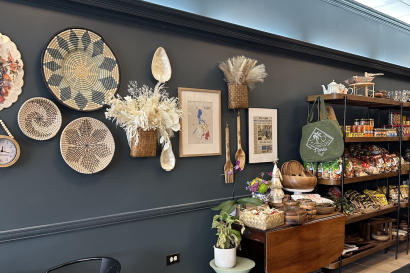Language changes from town to town in many cases. Speakers of the same language don’t sound the same, whether its their accent, their word order, or the expressions they use. Nations with English as an official language include the Phillipines, Somalia, Hong Kong, and Ireland. There is a lot of potential among those for distinct influences and individual language expression. One of my biggest interests in the field of linguistics in regional dialects.
My mom learned Spanish in southern California, and is most accustomed to Mexican vocabulary, which features words like “aguacate” (avocado) and “fresa” (strawberry). I learned before my first semester in Chile that in Bolivia they use different words for these things; avocado is palta, not aguacate, and strawberry is frutilla, not fresa. It turns out that these words are also used in Chile.
However, Chileans take regional vocabulary differences even further by also utilizing a completely unique verb conjugation and some other words that no where else has ever heard of. If we’re comparing to Mexican phrases again, “que onda” and “mande” serve as examples of phrases almost exclusively used there. In Chile, phrases that are only used by them would be “como estai” and “cacho.” This sort of thing could also be connected to the Argentine use of words like “che” and “boludo.” Some of these words are also used with different meanings in distinct locations. The word torta can mean cake or a type of sandwich depending on where you’re saying it.
Before my first semester in Santiago, my understanding of their dialect was purely based on internet searches and one book that was suggested by a friend. Once I arrived, I learned from every single person I talked to. My internship supervisor told me how the word Chileans use for significant other comes from the name of a bug. My host mom asked me “te tinca ir…?” and I looked wide eyed before finding out in our cultural immersion class that day that its a little similar to the phrase “tienes ganas.”
Practically everytime I talk to my mom in Spanish now, a pause is necessary at some point to explain the cultural significance of a word because its unfamiliar to her. I’ll jokingly give her quizzes sometimes like “Mom, what word do they use for that in Chile?” and almost always I have to cave and tell her the answer.
Sometimes common vocabulary will also be used with a slightly different meaning than the one used in other countries. For example, the word “auto” is used to describe a car in Chile. If I’m remembering correctly, “coche” is used to characterize a shopping cart. However in many other Spanish-speaking countries, coche is used as auto is in Chile, to express the word ‘car.’
When I was relying fully on internet searches, I was worried; Chilean vocabulary was so different than the European Spanish we were taught in my schools and the mostly Mexican and Puerto Rican Spanish that my friends spoke. The main thing I learned thanks to this experience is that every single place and person speaks a little bit differently. As is typical with language, we can use those differences to see what the people deem as important. I am looking forward to returning and delving even deeper into these linguistic distinctions.

Maggie Peyton
My name is Maggie and I'm from Chicago, Illinois (one of the best cities in the States in my completely unbiased opinion). I'm left-handed, could watch Encanto every day, and I am a huge fan of the singer-songwriter Mitski. I study Public Policy at the University of Illinois in Chicago and am excited to learn more about Santiago. I hope to find a community away from the one I have at home and make Santiago my own.








